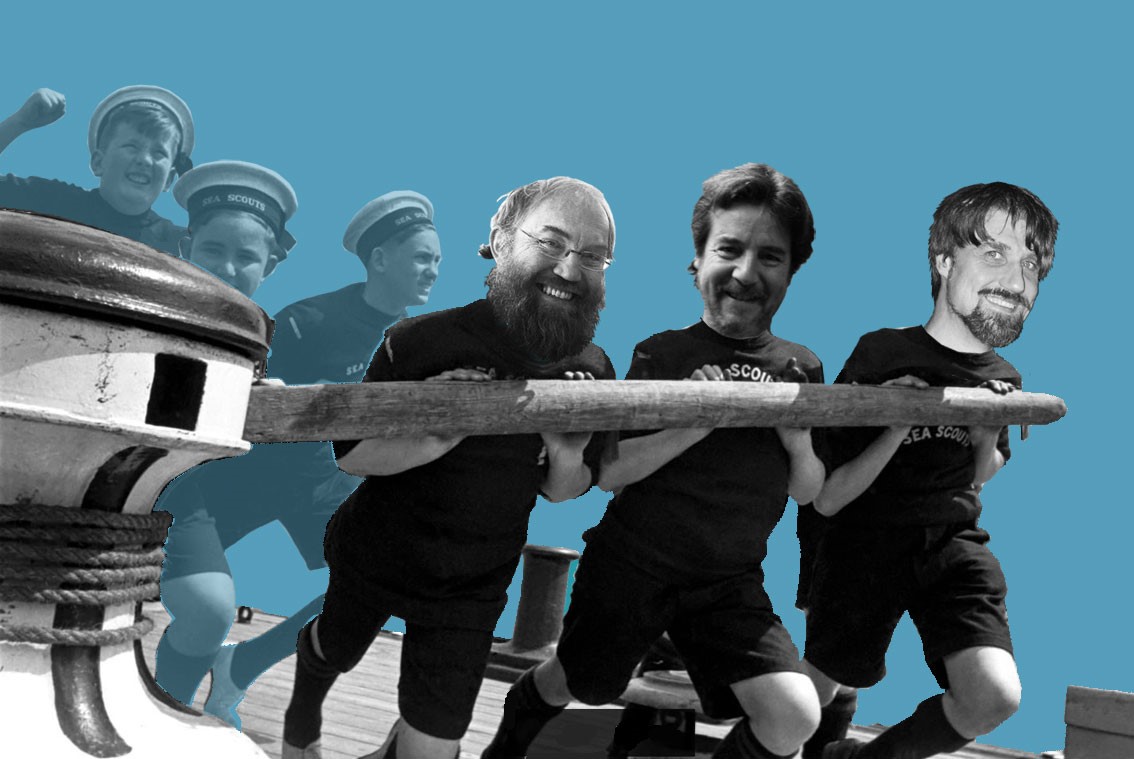
2000-2020. Why cApStAn is called cApStAn and other quirky inside stories
by Pisana Ferrari – cApStAn Ambassador to the Global Village
The initials of of the three cApStAn founders form the cApStAn name: the company of Apor, Steve and Andrea. But a capstan is also a marine term… What is the connection? How has this crew of three managed to become a small fleet, with 22 “sailors” coordinating over 400 linguists across the globe? And how does such a diverse group of people (14 different nationalities and 15 different languages) manage to work together, across different continents? What are their particular quirks and foibles, and do they use any special lingo in their interactions? Taking the occasion of the 20-year anniversary of the company, I thought this could make for an amusing, self-derisive and merrily “cApStAnian” article, giving our clients and friends the opportunity to take a peek inside the inner workings of the company.
Why the marine term?
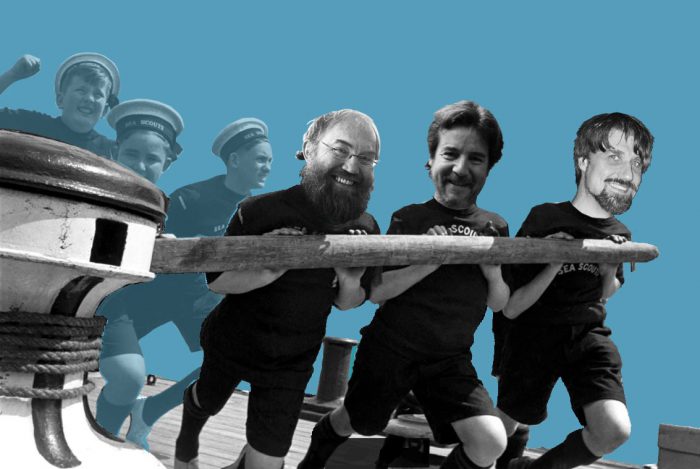
A capstan is a winch, a rotating machine used to multiply the pulling force of seamen. A five ton anchor can be hoisted by the pulling force of just three sailors pushing the capstan’s levers.  In cApStAn the first three sailors were Apor, Steve and Andrea, and the five-ton anchor was the mammoth project OECD PISA, for which they were commissioned to check linguistic equivalence between each country’s national version and the two international source versions. Over the years, new sailors from different parts of the world joined the team, which now consists of 22 people, working from the Brussels and Philadelphia offices, coordinating a vast network of linguists and subject matter experts across both sides of the Atlantic.
In cApStAn the first three sailors were Apor, Steve and Andrea, and the five-ton anchor was the mammoth project OECD PISA, for which they were commissioned to check linguistic equivalence between each country’s national version and the two international source versions. Over the years, new sailors from different parts of the world joined the team, which now consists of 22 people, working from the Brussels and Philadelphia offices, coordinating a vast network of linguists and subject matter experts across both sides of the Atlantic.
A charming hideout in Brussels
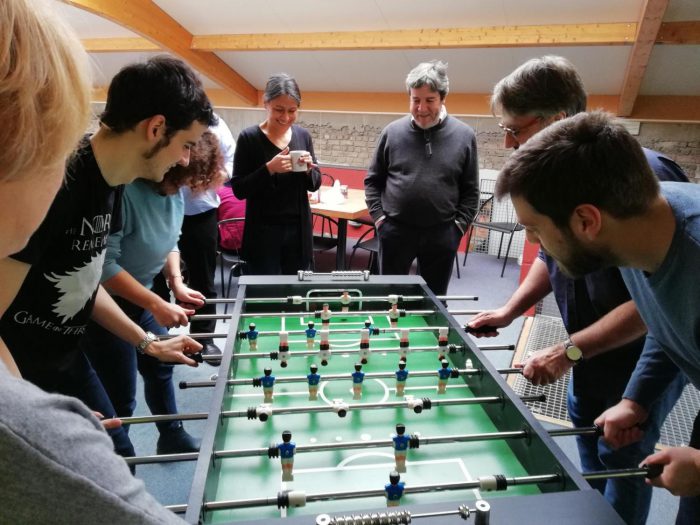
Roberta, one of the senior project managers, was my main source of info for the Brussels office, which is situated in an old town house in the verdant neighbourhood of Watermael-Boitsfort. It was Steve who suggested I contact her (“Roberta has always been quite serious about humour”, he said). The 15 team members come from a variety of different countries, including Belgium, France, India, Italy, North Macedonia, Nepal, Romania, South Korea and Turkey. I learned from Roberta that Adrien, our Belgian IT expert, likes to look after the office greenery and will regularly come up with new things to plant. He is also an accomplished handyman and built most of the IKEA office chairs. Adrien says that an intern from last year, Cristina, helped him with one, and they raced to see who finished it first. Steve, our CEO, brings freshly baked croissants for everyone on Thursday mornings, and all take turns to organise lunch in the common area. Table soccer is a big thing here and there are regular tournaments; one can sign up to play on the cApStAn message board. Some prefer to devote their free time to a siesta… Roberta once happened to walk into a spare office where Andrea, cApStAn’s CFO, was lying flat on the floor, looking totally lifeless, and caught a fright; since then he closes the door and puts a “Do not disturb” sign on it.
He is also an accomplished handyman and built most of the IKEA office chairs. Adrien says that an intern from last year, Cristina, helped him with one, and they raced to see who finished it first. Steve, our CEO, brings freshly baked croissants for everyone on Thursday mornings, and all take turns to organise lunch in the common area. Table soccer is a big thing here and there are regular tournaments; one can sign up to play on the cApStAn message board. Some prefer to devote their free time to a siesta… Roberta once happened to walk into a spare office where Andrea, cApStAn’s CFO, was lying flat on the floor, looking totally lifeless, and caught a fright; since then he closes the door and puts a “Do not disturb” sign on it. 
Most of the Brussels office is open plan and communication flows freely among the team members. Shinoh has developed her own special system for public alerts: “ooy” (mild alarm), “ooy ooy” (severe alarm), “ooy ooy ooy” (panic mode).  A mild alarm might refer to I forgot my smartphone somewhere or I lost my house keys; a severe alarm to Something that should have been delivered two days ago disappeared from our radar and the file we have received is all garbled and the linguist is unreachable; and panic mode, to an extreme incident (we prefer not to give examples…). The fun part, says Steve, is that Shinoh is a Korean using a typical Flemish onomatopoeia: “oei!” (pronounced “ooy”, like the French “ouille”). Savita, the Office Manager, who is from Nepal, will call out “cootchie cootchie” if she stumbles across something new and cute she wishes to share with others, and when Danina, our translation technologist from Romania, receives a cat photo, you can hear a very loud “ooooooooooow” in the whole building. Danina told me there was a time when Adrien and Steve kept doing chicken noises to see who could do it better!
A mild alarm might refer to I forgot my smartphone somewhere or I lost my house keys; a severe alarm to Something that should have been delivered two days ago disappeared from our radar and the file we have received is all garbled and the linguist is unreachable; and panic mode, to an extreme incident (we prefer not to give examples…). The fun part, says Steve, is that Shinoh is a Korean using a typical Flemish onomatopoeia: “oei!” (pronounced “ooy”, like the French “ouille”). Savita, the Office Manager, who is from Nepal, will call out “cootchie cootchie” if she stumbles across something new and cute she wishes to share with others, and when Danina, our translation technologist from Romania, receives a cat photo, you can hear a very loud “ooooooooooow” in the whole building. Danina told me there was a time when Adrien and Steve kept doing chicken noises to see who could do it better!  That was quite surprising for a few days, until you got used to it, she adds. Back then, when it was still acceptable, reports Adrien, there was also a kind of weird competition to see who would sneeze the loudest!
That was quite surprising for a few days, until you got used to it, she adds. Back then, when it was still acceptable, reports Adrien, there was also a kind of weird competition to see who would sneeze the loudest! 
The Philly crew
The seven team members working out of Philadelphia are from Syria, Finland, Italy, Germany, and the US. The Philly office is located right in Center City, just two blocks from City Hall, the iconic building at the crossroads of the city’s two main thoroughfares, Broad St. and Market St. Colleagues from Brussels and verifiers that visit the office can expect an invitation to a City Hall Tower tour for a panoramic view of the city. The office is on the 17th floor of the North American Building, a building that was completed during the protracted construction of City Hall and claims the fame of briefly being the tallest building in the city… until City Hall was completed and took the title.

The Philly team generally eats lunch in the office together. Some bring lunch from home, and some take a mid-day break to pick up takeout from a neighborhood restaurant. We’re lucky to enjoy a variety of quality options within walking distance, says Laura, the Operations Director, such as falafel and tahini shakes, fried chicken and doughnuts, poke bowls, gelato, gigantic hoagies (Philadelphian term for a sub-style sandwich), or a full menu of vegan sandwiches and salads from the restaurant right in our building. And lunchtime conversation is always entertaining and educational, covering food, travel, politics, history, religion, and of course language. 
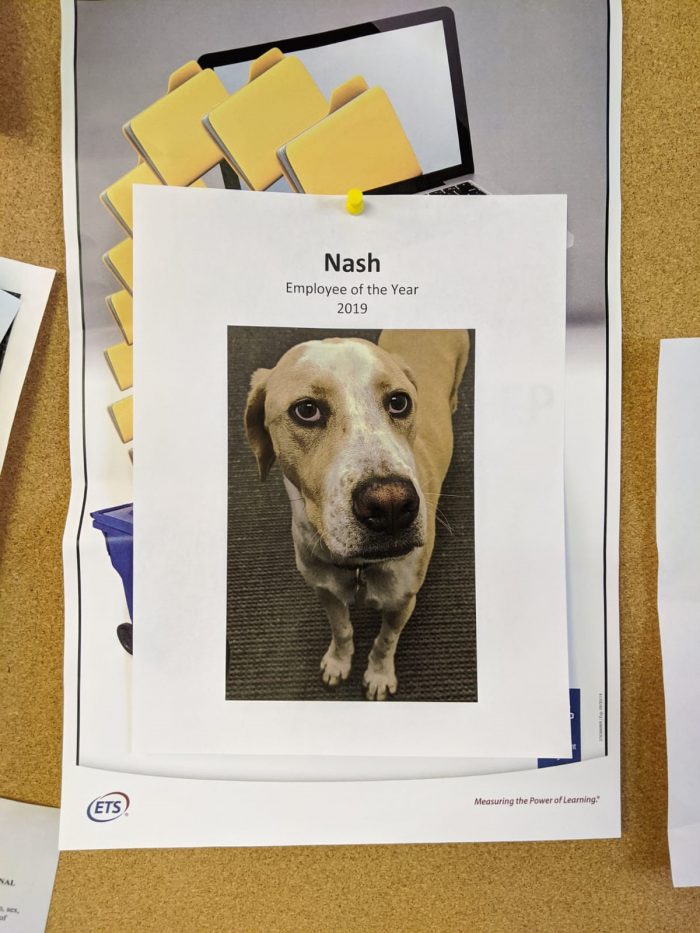
Some members of the Philly team especially thrive on competition, and they have held some friendly health-related competitions in the past. One included earning points for taking the stairs instead of the elevator. At 17 stories, going up was worth more points than going down. And for a time, you could find team members taking a quick break by holding a plank next to their office chair for extra points! 
Laura says they even went so far as doing a sugar-free challenge, which some of the Brussels team members joined in on. Musab, the cApStAn Inc Managing Director, surely would have been the winner if he had participated, says Laura, as he is the odd one out in the office who does not like to eat desserts. Luckily for the others, there are always some treats available to enjoy with afternoon coffee or tea! Some of the popular treats in the office are Belgian chocolate (of course), Canadian maple candies, Girl Scout cookies, and Laura’s favorite, Glorias (a goat milk and pecan candy from Mexico).

The Philly office has had several office dogs. Last summer it was a Swiss Mountain dog called Gomez, reports Treonna. One of the visiting dogs was even nominated the “Employee of the year” and there is a certificate with Nash’s picture on the office bulletin board. 
The “Yo” greeting thing
In one-to-one conversations most members of the team, across both sides of the Atlantic, greet each other with a “yo” (Yo Andrea, Yo Steve). Laura helped me shed some light on this “Yo” business. She says it has been around for as long as she remembers and that some years ago Andrea looked up it up on Wikipedia. Turns out that “Yo” was popularized by the Italian-American community in Philadelphia (of all places!), in the 1940s. “Yo” is also used when communicating in writing  and if an e-mail is addressed to more than one person, it will more often than not open with “Yo galz”, or Yo boyz”. Adding a “z” or an “x” at the end of a word is something Steve also likes to do and he almost always signs off his e-mails with “Hugz”, “Cheerz”, or Winx”.
and if an e-mail is addressed to more than one person, it will more often than not open with “Yo galz”, or Yo boyz”. Adding a “z” or an “x” at the end of a word is something Steve also likes to do and he almost always signs off his e-mails with “Hugz”, “Cheerz”, or Winx”.
Grammar, punctuation and fonts: likes and dislikes
Steve’s idiosyncrasies include an intense dislike for exclamation points, ellipses and, above all else, emojis (he will probably be horrified by this article when he sees it..! ). Andrea’s own personal quirk is a passion for the Courier New font, which everybody else dislikes and finds old-fashioned, and Roberta, for her part, has a fixation about double spacing between words (and might well throw a tantrum if people do not comply). Valentina, who is an assistant for survey localisation in Philly, says she “dies a little bit inside” each time one uses ‘ instead of ” for quoting text inside an Excel cell (the simple quotation mark ‘ disappears in Excel when used at the beginning… and makes the closing quotation mark the only visible one).
). Andrea’s own personal quirk is a passion for the Courier New font, which everybody else dislikes and finds old-fashioned, and Roberta, for her part, has a fixation about double spacing between words (and might well throw a tantrum if people do not comply). Valentina, who is an assistant for survey localisation in Philly, says she “dies a little bit inside” each time one uses ‘ instead of ” for quoting text inside an Excel cell (the simple quotation mark ‘ disappears in Excel when used at the beginning… and makes the closing quotation mark the only visible one). 
The fussiness over even very small punctuation details can go quite far: one intern who was doing a FOC (final optical check) of PISA booklets, checking target booklet versus source booklet, page by page, famously reported that “on page 5, 4th paragraph, there is a comma in italics which is not in italics in the source”. It takes some doing to see a comma incorrectly in italics in a page full of text! 
Cultural issues around food
Being inclusive and open to each other’s different cultures and traditions is all very well, but Roberta, who is Italian, has drawn the line on what is acceptable and what isn’t regarding some key Italian culinary rituals, and drinking a cappuccino after lunch, eating pasta as a side dish, or adding grated parmesan to a pasta dish with fish are definitely not! 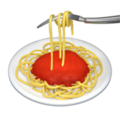 Adrien says Roberta tests him from time to time with stuff like “Is it okay to have linguine alle vongole con formaggio?” and that she can be quite daunting! But, he adds, “she is still my Auntie.” Adrien is the youngest member of the team in Brussels, just to put this in context (and he actually writes “Cara zia” not only to Roberta but also to Savita in his e-mails). The coffee machine ritual also deserves a mention. On his first day at cApStAn Andrea, who is Italian, asked Adrien if he wanted an espresso or a large coffee. Adrien said large, but Andrea nevertheless pushed the espresso button. To “fix” the problem, says Adrien, he put a second espresso in the cup. At cApStAn 1 espresso + 1 espresso = 1 large coffee.
Adrien says Roberta tests him from time to time with stuff like “Is it okay to have linguine alle vongole con formaggio?” and that she can be quite daunting! But, he adds, “she is still my Auntie.” Adrien is the youngest member of the team in Brussels, just to put this in context (and he actually writes “Cara zia” not only to Roberta but also to Savita in his e-mails). The coffee machine ritual also deserves a mention. On his first day at cApStAn Andrea, who is Italian, asked Adrien if he wanted an espresso or a large coffee. Adrien said large, but Andrea nevertheless pushed the espresso button. To “fix” the problem, says Adrien, he put a second espresso in the cup. At cApStAn 1 espresso + 1 espresso = 1 large coffee. 
cAp-Stan, the cap nation (as in Kazakh-stan)
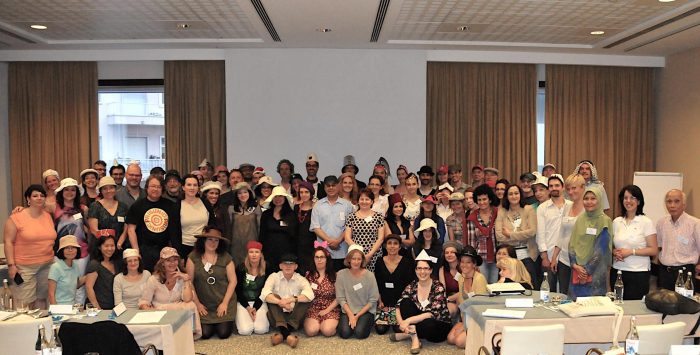
Team members have sometimes joined forces across the Atlantic to organise collective initiatives. One group in particular suggested that if Kazakhstan is the land of the Kazakhs, and Uzbekistan is the land of the Uzbeks, then cAp-StAn must be the land of the “caps”. This was epitomized at cApStAn’s verifier training seminar in Lisbon, where everyone wore some kind of hat, the more eccentric the better.  A similar meeting in Istanbul prompted another fun idea, that of creating a “Certificate of Proficiency in Verification Techniques”, whose accompanying text, in rhymes, refers to “fighting linguistic windmills”, loss of appetite, headaches, and sleepless nights, worrying about typos, mistakes and mistranslations (e.g. a donkey that becomes a monkey…)!
A similar meeting in Istanbul prompted another fun idea, that of creating a “Certificate of Proficiency in Verification Techniques”, whose accompanying text, in rhymes, refers to “fighting linguistic windmills”, loss of appetite, headaches, and sleepless nights, worrying about typos, mistakes and mistranslations (e.g. a donkey that becomes a monkey…)! 
Top trending cApStAn buzzwords
One particularly popular expression probably dates back to the early days of cApStAn, when there were endless meetings to define the structure of the company, its objectives, next steps, and so on. Andrea told me that sometimes, when he was talking to Steve and he was tired and not really listening, he would nod and say: yes, “there’s that too”. Steve did not take long to see through this and, since then, the phrase has gone viral with all.

Just as large international cooperation has led to the creation of European English and International English, cApStAn’s diverse staff communicate in a sort of cApStAn English that even the three native speakers in the Philly office have fully adapted to. Grace notes that it’s not very often in casual speech that “indeed” is used to affirm something, when instead a “correct” or “that’s right” will do, but it is in such common use at cApStAn that her usage of the word indeed has skyrocketed since joining the company. 
Conclusions
“Hard work and good vibes”, and “Excellence among friends” are two great cApStAn mottos, indeed. Hours are long and stress levels can be very high, but within this group of talented, professional, and highly dedicated international polyglots, the atmosphere is friendly, homey and fun. Danina says it’s always an adventure and a pleasure to go to the office. And, to quote Steve, “the original capstan concept of multiplying our pulling force still holds true: anyone who has worked with cApStAn will have noticed their special ability to seamlessly combine forces into a collaborative effort that makes it possible to tackle the most challenging tasks, working as one, each contributing to the best of one’s abilities”. Looking to the future of this company and great bunch of people I have the privilege of working with, I end this article with one of Steve’s favourite, and very auspicious, words: Onward!
See also our video “2000-2020. Memorable cApStAn moments” below: